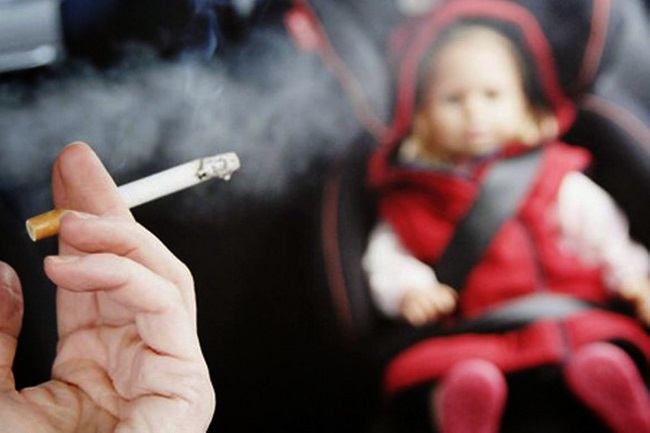This year’s International Childhood Cancer Day (ICCD) themed “Inspiring Action” reminds us that childhood cancer remains a tragic reality for many families. The most recent estimate from the International Agency for Research on Cancer (IARC) reveals that around 275,000 new cases of cancer occur worldwide in children aged 0–19 each year.

While the exact causes of most childhood cancers are still not fully understood, researchers are increasingly looking into environmental factors that may contribute to the risk. One area of growing concern is second-hand exposure, particularly regarding tobacco smoke.
Second-hand exposure refers to the inhalation of harmful substances by individuals who are not the primary users of those substances. In the case of tobacco products, it is also called second-hand smoke (SHS) exposure, a deadly problem for both young and old. According to the World Health Organisation, tobacco kills more than 8 million people each year, including an estimated 1.3 million non-smokers who are exposed to second-hand smoke.
In Nigeria alone, tobacco use claims about 26,000 lives and inflicts debilitating conditions and non-communicable diseases (NCDs) like cancer, heart disease, and chronic respiratory diseases on thousands more.
While the causes of childhood cancer are complex and multifaceted, addressing second-hand exposure remains a critical component of prevention efforts.
A study found that adolescents in Nigeria who were exposed to SHS had an increased risk of lung cancer. According to another study, exposure to SHS during pregnancy increased the risk of cancer in descendants.
Furthermore, maternal smoking during pregnancy may also be a risk factor for retinoblastoma and certain types of childhood brain tumours. Children who grow up in homes or environments where adults smoke are often subjected to these harmful chemicals, even if they do not smoke themselves.
Even brief exposure or living near a smoker can subject children to harmful carcinogens, leading to long-term health consequences. For children, living in households with smokers is the biggest risk factor for second-hand smoke exposure. Parental smoking, low socioeconomic status, low educational level, and less negative attitudes toward second-hand smoke have been associated with a child’s exposure to second-hand smoke at home.
Given the potential risks associated with second-hand exposure, parents and caregivers must take proactive steps to protect children. Some strategies to minimise exposure include creating a smoke-free environment, conducting regular health check-ups, and educating others about the danger of tobacco use and second-hand smoke.
Establishing a smoke-free home and car is one of the most effective measures to prevent second-hand tobacco smoke exposure. Family and friends should be encouraged to refrain from smoking.
Regular health check-ups should be scheduled for children to monitor their overall health and address any concerns with a paediatrician.
Spreading awareness about the potential risks of second-hand exposure to friends and family is also critical. Informing others can foster a community of support that prioritises children’s health.
Ultimately, the solution to second-hand smoke-induced childhood cancer is not legalising or making tobacco products available to the Nigerian public.
By recognising the potential risks of tobacco consumption and taking proactive measures, families can create healthier environments for children, ultimately contributing to the reduction of childhood cancer rates.
ICCD is a global collaborative campaign to raise awareness and promote an increased appreciation and deeper understanding of the challenges faced by children and adolescents with cancer, the survivors and their families. ICCD spotlights the need for more equitable access to treatment and care for all children with cancer, everywhere.
ICCD 2025 marks the second phase of a three-year global initiative focused on tackling the challenges faced by children with cancer.
By Esi-ife Arogundade, tobacco control advocate at Corporate Accountability and Public Participation Africa (CAPPA)
